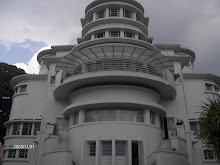Name: Sophia Fithri A.
Class: English Education (B)
Student number: 0802570
Periods of English Literature
Periods of literature are included of English historical succession. There are some terms and criteria of classification have established themselves as standard in Anglo-American literary criticism. The criteria for classification come from fields such as the history of the language (old and Middle English), national history (Colonial Periods), politics, and region (Elizabethhan and Puritan Age) and art (Reneissance and Modernism).
Periods of English Literature
Old English Periods 5th-11th centuries
Middle English Periods 12th-15th centuries
Renaissance 16th-17th centuries
Augustan Age 18th centuries
Romantic Period first half of 19th centuries
Victorian Age Second half of 19th centuries
Modernism First to Second World War
Postmodernism 1960s and 1970s
Periods of American Literature
Colonial or Puritan Age 17th-18th centuries
Romantic Periods and
Transcendentalism first half of 19th centuries
Realism and Naturalism Second half of 19th centuries
Modernism First to Second World War
Postmodernism 1960s and 1970s
The old English or Anglo-Saxon Periods is respected as beginning with the invasion of Britain by Germanic ethnics in the 5th centuries AD and lasting until the French invasion under William the Conqueror in 1066. When England was terminated by the French-speaking Normans in the eleventh centuries, a certain rupture occurred in culture and literature. From the latter half of this Middle English periods, a number of texts from many kind literature genres have been preserved. The texts includes lyric poetry and epic, the romance which include anonymous Sir Gawain and the Green Knight (fourteenth centuries) and Thomas Maliry’s (1408-71) Le Morte thed’ Arthur (1470). It is also influenced the development of the novel in eighteen centuries.
The English Renaissance (Early New English Periods) focuses on the history of the language, and the Elizabeth Age (Queen Elizabeth 1) or Jacobean Age (King James). This period is a revival of the classical genres, such as the epic with Edmund Spencer’s (1552-99), Faerie Queen (1590-1596), and the drama of William Shakespeare (1564-1616), and others. The English Renaissance produced relatively independent prose genres and are dominated by Greco-roman genres.
The next period is the Eighteen centuries, which is referred to as the Neoclassical, golden or Augustan Age. In this period, classical literature and literary theory were adapted to suit contemporary culture. A variety of genres in this period include a translation, theoretical essays, and literary texts of John Dryden (1631-1700) and Jonathan Swift (1667-1745).
At the end of the eighteenth centuries, it’s marked by Romanticism as a beginning of a new period in traditional English literary history. Romanticism may be seen as a reaction to the Enlightenment and political changes throughout European and American at the end of eighteenth centuries. The most important of representative of this period include William Blake (1757-1827), John Keats (1795-1821), Percy Bysshe Shelley (2792-2822) and Mary Shelley (1797-1851).
English and American Modernism can be seen as a reaction to the realist movements of the late nineteenth centuries. Modernism discovered innovative narrative technique such as stream of consciousness or structural forms such as collage and literary cubism. The main works in this period include James Joyce’s (1882-1991), Ulysses (1992) and Finnegans Wake (1939).
In Postmodernism, modernist issues regarding innovative narrative technique are taken up again in this period and adapted in academic or sometimes formalistic way. The narrative technique in this period written with multiple perspectives, interwoven strands of plot and experiments in typography characterize the text of this era, and the literary work which helped the movement to attain recognition in literary criticism such as John Barth’s (*1930), Thomas Pynchon’s (*1937), and John Fowles’ (1926).
References:
Klarer, Mario.1998.An Introducing to Literary Studies.London:Routledge
Rabu, 30 September 2009
Langganan:
Posting Komentar (Atom)


Tidak ada komentar:
Posting Komentar